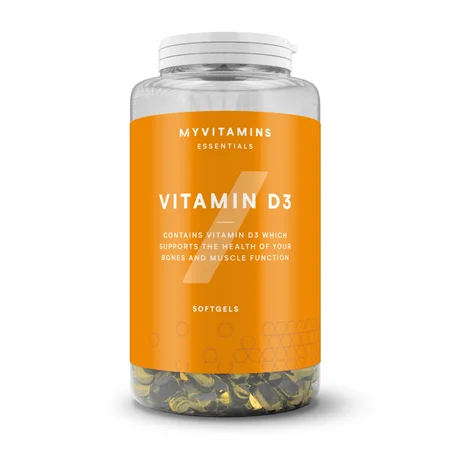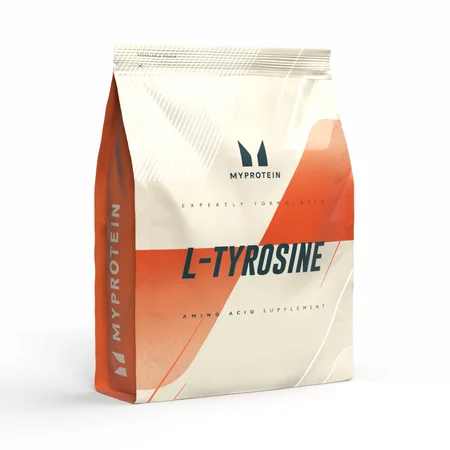L-Tyrosine | Benefits, Uses, Dosage & Side Effects

Your body is made up of billions of building blocks that work in unison to keep you functioning effectively. One such constituent is the amino acid N-acetyl-L-tyrosine. There are several L-tyrosine benefits that you could be reaping, but some potential side-effects to be aware of too.
So, should you be taking this supplement? Let’s break it down: in this article we’ll explain what L-tyrosine is, the differences between N acetyl L-tyrosine and L-tyrosine, and discuss the main benefits of L-tyrosine, as well as its uses, potential side effects and recommended dosage.
- What is L-Tyrosine?
What is the difference between N Acetyl L-Tyrosine and L- Tyrosine? L-Tyrosine Benefits L-Tyrosine Uses L-Tyrosine Side Effects L-Tyrosine Dosage
What is L-Tyrosine?
L-Tyrosine, or tyrosine, is a naturally occurring, nonessential amino acid, meaning that your body naturally absorbs tyrosine from food.
It’s developed in your body from phenylalanine, another amino acid. L-tyrosine plays an important role in your body’s production of neurotransmitters (chemicals that transmit nerve impulses) like dopamine and adrenaline, as well as melanin and thyroid hormones, which impact our skin and metabolism.1,2
Tyrosine is found in lots of foods, including lean proteins such as chicken, eggs, fish and whole grain oats, as well as dairy products like milk, cheese and yoghurt.

What is the difference between N-acetyl L-tyrosine and L-tyrosine?
Tyrosine comes in two main forms: N acetyl L-tyrosine and L-tyrosine. The difference between them is their bioavailability, which essentially means how easily they can be used by the body.
N-acetyl L-tyrosine is more water soluble, however: it has a lower conversion rate within your body and more of it is required. That’s why L-tyrosine is the most commonly used form for supplementation.2
L-tyrosine benefits
1. L-Tyrosine may improve your mood
As L-tyrosine is a precursor to the ‘feel good’ hormone dopamine, it has been suggested that L-tyrosine may help with low mood.
In healthy individuals, there is evidence to show that under stressful conditions (i.e., exposure to extreme cold for several hours), tyrosine may prevent mood from lowering too much.4
Whether these findings could be applied to normal day-to-day life is unclear. However, if you are going through a particularly stressful period, L-tyrosine may help prevent the depletion of catecholamines, which in turn could help prevent your mood from dropping too low.1
2. L-Tyrosine may increase exercise capacity in the heat
Increased availability of dopamine has been shown to increase exercise tolerance in high-heat conditions.
In a study investigating the effects tyrosine while cycling in 30-degree heat, it was found that those who had taken a tyrosine supplement were able to maintain cycling for 15% longer on average.5 However, these results were only found in one study, and results overall are far less conclusive.2
Based on this, L-tyrosine supplementation may be worth considering during hot summer months if training or competing in a hot climate. Be realistic, though, it probably won’t deliver miraculous performance enhancements.
3. L-Tyrosine may improve memory and cognitive ability during stressful situations
Under acute stress such as temperature changes and sleep deprivation, there is evidence to suggest that L-tyrosine may prevent a depletion of anti-stress catecholamines such as dopamine.1
However, the effects depend on how stressful the situation is and if it is stressful enough to deplete catecholamines. So, this could mean L-tyrosine isn’t as effective in day-to-day situations.

L-tyrosine uses
L-tyrosine may be used to help improve alertness and focus.
It has been proven to be effective in this by helping your body to cope with the detrimental effect stress can have on your body in stressful situations. Due to its role in the production of dopamine, tyrosine supplementation has been investigated to see if it improves mood.
As previously pointed out, the results are mixed, with the improvements seeming to take place only in extreme conditions such as exposure to cold temperatures. For example, there is evidence to show that tyrosine supplementation for those living in Antarctica for long periods of time has helped prevent reductions in mood.8
Based on this, tyrosine may be worth considering if you find your mood is low during cold, winter months.
As a sports performance supplement, L-tyrosine may help improve the ability to keep moving even in extreme heat.6 However, again, the evidence is mixed.
The most promising benefit when it comes to workouts is the potential to improve focus and alertness — making you able to “keep your head in the game” and get your workouts done.
L-tyrosine side effects
Long term supplementation of tyrosine appears to be safe in healthy individuals.1 However, for those suffering with certain medical conditions, there may be side effects.
So, it’s important to consult your doctor before supplementing with L-tyrosine.
L-tyrosine dosage
The evidence is currently fairly limited for the optimal dose of L-,with the appropriate dosage depending on your reasons for supplementing.
In the research, doses given range from 500mg to 12g a day. However, doses over 1g a day are unlikely to provide much of an additional benefit, so as a general guide, a supplement dose between 0.5g-1g would be appropriate for most people.1

Take home message
L-tyrosine can be supplemented alongside a balanced diet for anyone engaged in a long-term physical training plan.
The main benefits of L-tyrosine for athletic performance are thought to come from it contributing to improved focus and alertness.
As it’s a precursor to dopamine and a mood regulator, it’s also believed it may help improve mood in high-stress environments — however, the evidence for this is still inconclusive, and it’s not known whether this translates to day-to-day life.
Supplementation could be helpful for helping with symptoms of seasonal affective disorder. remember, it’s always important to consult your doctor prior to supplementing to make sure it’s a good option for you.
READ THESE NEXT:

Liam is a certified sport nutritionist with the International Society of Sport Nutrition and is enrolled on the British Dietetics Association’s Sport and Exercise Nutrition register. He has a Bachelor’s of Science in Sport and Exercise Science and is graduate of the ISSN Diploma in Applied Sport and Exercise Nutrition.
Liam is an experienced personal trainer, helping clients reach their health and fitness goals with practical, evidence informed exercise and nutrition advice. In his spare time Liam has competed in numerous powerlifting competitions and enjoys hill walking, football and expanding his recipe repertoire in the kitchen.Find out more about Liam's experience here.
1. Jongkees BJ, Hommel B, Kühn S, Colzato LS. “Effect of tyrosine supplementation on clinical and healthy populations under stress or cognitive demands”–A review. J Psychiatr Res. 2015 Nov;70:50-7. doi: 10.1016/j.jpsychires.2015.08.014. Epub 2015 Aug 25. PMID: 26424423.
2. Hoffer LJ, Sher K, Saboohi F, Bernier P, MacNamara EM, Rinzler D. “N-acetyl-
L-tyrosine as a tyrosine source in adult parenteral nutrition.” JPEN J Parenter Enteral Nutr. 2003 Nov-Dec;27(6):419-22. doi: 10.1177/0148607103027006419. PMID: 14621123.
3. Gelenberg AJ, Wojcik JD, Falk WE, Baldessarini RJ, Zeisel SH, Schoenfeld D, Mok GS. “Tyrosine for depression: a double-blind trial.” J Affect Disord. 1990 Jun;19(2):125-32. doi: 10.1016/0165-0327(90)90017-3. PMID: 2142699.
4. Banderet LE, Lieberman HR. “Treatment with tyrosine, a neurotransmitter precursor, reduces environmental stress in humans.” Brain Res Bull. 1989 Apr;22(4):759-62. doi: 10.1016/0361-9230(89)90096-8. PMID: 2736402.
5. Tumilty L, Davison G, Beckmann M, Thatcher R. “Oral tyrosine supplementation improves exercise capacity in the heat.” Eur J Appl Physiol. 2011 Dec;111(12):2941-50. doi: 10.1007/s00421-011-1921-4.
6. Bloemendaal M, Froböse MI, Wegman J, et al. “Neuro-Cognitive Effects of Acute Tyrosine Administration on Reactive and Proactive Response Inhibition in Healthy Older Adults.” eNeuro. 2018;5(2):ENEURO.0035-17.2018
7. Palinkas LA, Reedy KR, Smith M, Anghel M, Steel GD, Reeves D, Shurtleff D, Case HS, Van Do N, Reed HL. “Psychoneuroendocrine effects of combined thyroxine and triiodothyronine versus tyrosine during prolonged Antarctic residence.” Int J Circumpolar Health. 2007 Dec;66(5):401-17. PMID:
18274206.
8. DiFrancisco-Donoghue J, Rabin E, Lamberg EM, Werner WG. “Effects of Tyrosine on
Parkinson's Disease: A Randomized, Double-Blind, Placebo-Controlled Trial.” Mov Disord Clin Pract. 2014;1(4):348-353. Published 2014 Oct 23. doi:10.1002/mdc3.12082










